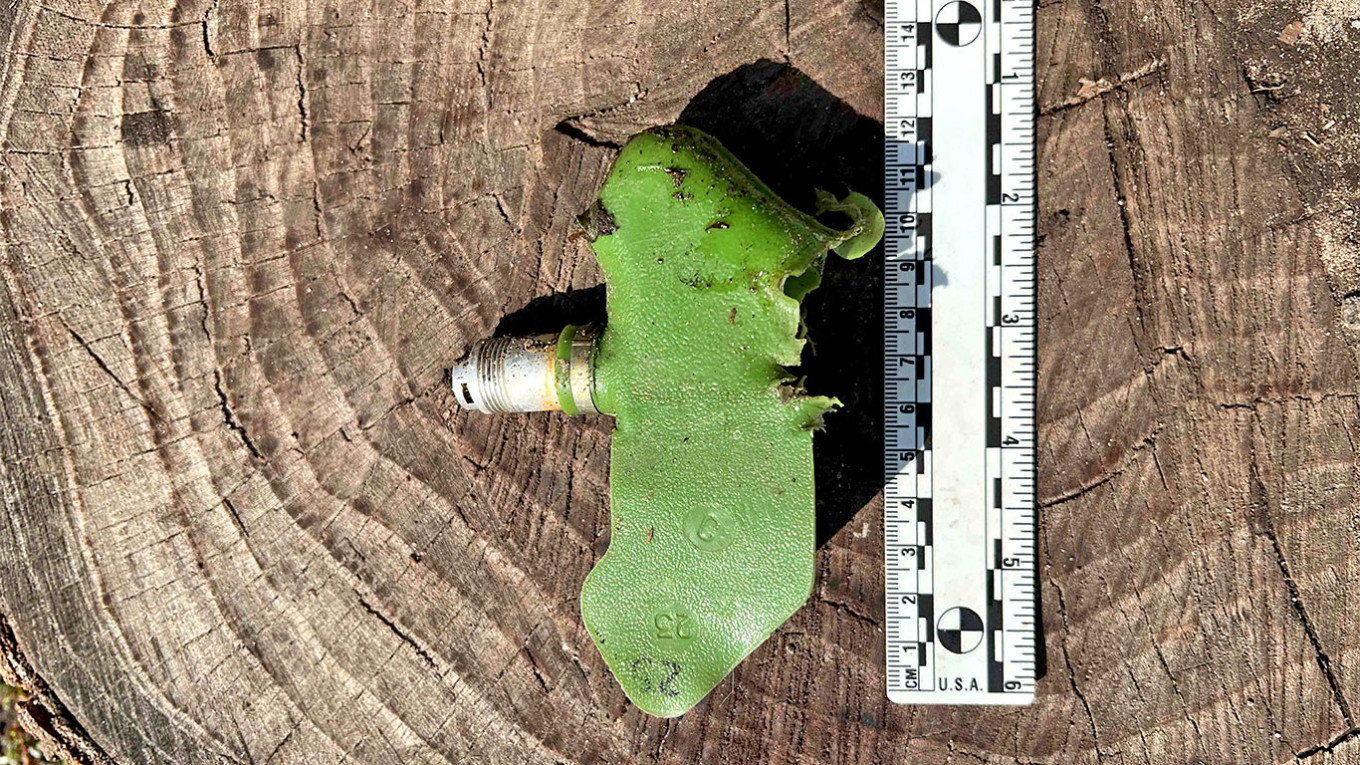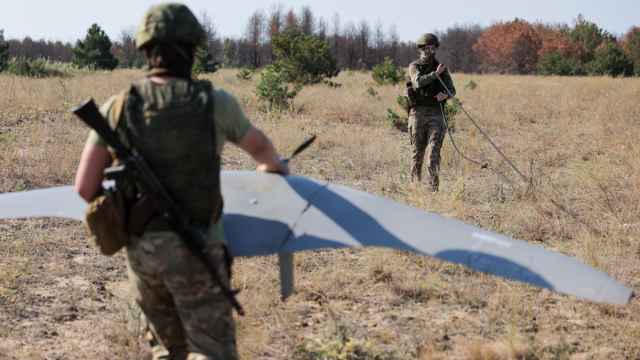Human Rights Watch on Tuesday accused Ukraine of using banned anti-personnel landmines against invading Russian forces, saying almost 50 civilians, including five children, had been wounded.
Ukraine's defense ministry insisted the army upholds its treaty obligations against mines, but it would not comment on the types of weapons used until the war ends.
Distributed by rocket across a target area, the tiny PFM mines are also known as "butterfly" or "petal" mines for their distinctive shape.
"Ukrainian forces appear to have extensively scattered landmines" around the Izium area in the northeast, HRW arms expert Steve Goose said.
Russian forces held Izium between April and early September, when Kyiv retook it in a counter-offensive.
"Russian forces have repeatedly used anti-personnel mines and committed atrocities across the country, but this doesn't justify Ukrainian use of these prohibited weapons," Goose said.
Spokesman for the UN secretary general Farhan Haq said in New York, "It's clear that when there's any chance that armaments are being used that caused such casualties, that this (should) be fully investigated, and so we would encourage that to happen."
Ukraine is a signatory to the 1997 Mine Ban Treaty and destroyed much of its Soviet stock by 2020.
But in 2021 — the year before the Russian attack — Kyiv reported to the UN that over 3.3 million PFM mines contained in artillery rockets were yet to be destroyed.
HRW said its researchers on the ground saw physical evidence of such rockets and traces of the mines in the Izium area, as well as speaking to witnesses who had themselves encountered mines, knew someone who was injured, or had been warned about the weapons.
"Healthcare workers said that they treated nearly 50 civilians, including at least five children, who were apparently injured from anti-personnel mines," HRW said.
"About half of the injuries involved traumatic amputations of the foot or lower leg, injuries consistent with PFM blast mines."
"Ukraine should recommit to the Mine Ban Treaty's strict prohibitions, open an investigation into the recent apparent use of PFM anti-personnel mines, hold those responsible to account, and take steps to secure and destroy its stocks of antipersonnel mines," the rights group said, also urging Russia to end their use.
HRW said it presented the Ukrainian authorities with a summary of the findings in November.
Deputy Defense Minister Oleksandr Polishchuk replied but did not provide direct answers to the allegations, it added.
But he said: "Ukraine is a reliable member of the international community, and it fully commits to all international obligations in the sphere of mine usage. This includes the non-use of anti-personnel mines in the war."
Ukraine authorities could not comment on the types of weapons used "before the end of the war and the restoration of our sovereignty and territorial integrity."
A Message from The Moscow Times:
Dear readers,
We are facing unprecedented challenges. Russia's Prosecutor General's Office has designated The Moscow Times as an "undesirable" organization, criminalizing our work and putting our staff at risk of prosecution. This follows our earlier unjust labeling as a "foreign agent."
These actions are direct attempts to silence independent journalism in Russia. The authorities claim our work "discredits the decisions of the Russian leadership." We see things differently: we strive to provide accurate, unbiased reporting on Russia.
We, the journalists of The Moscow Times, refuse to be silenced. But to continue our work, we need your help.
Your support, no matter how small, makes a world of difference. If you can, please support us monthly starting from just $2. It's quick to set up, and every contribution makes a significant impact.
By supporting The Moscow Times, you're defending open, independent journalism in the face of repression. Thank you for standing with us.
Remind me later.






